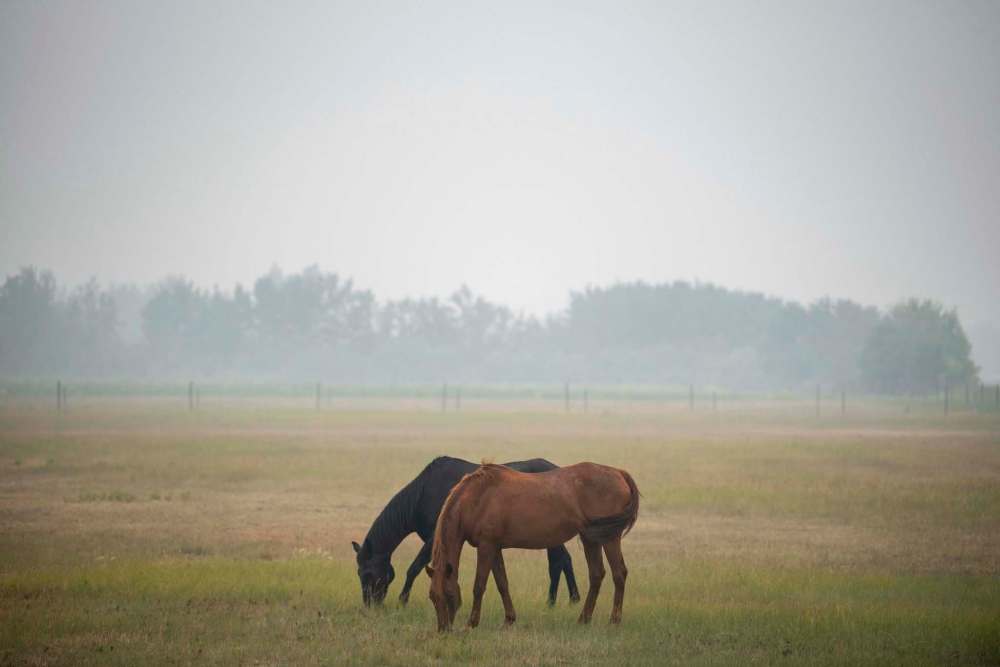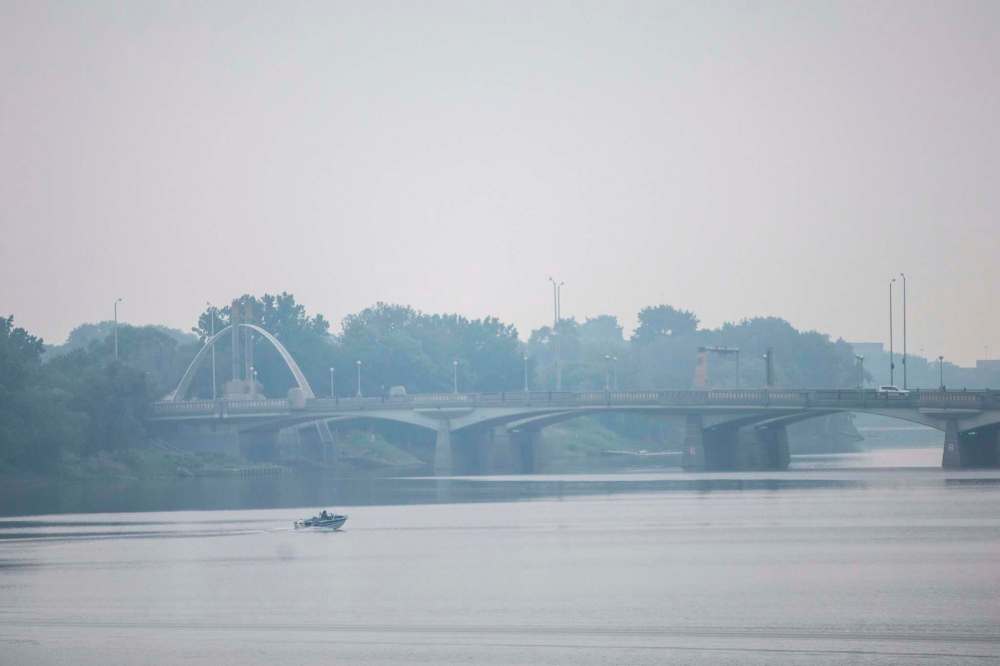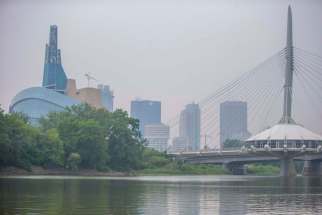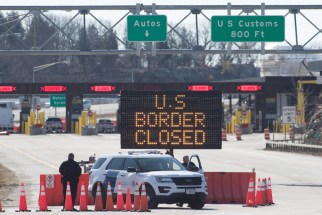Burning need to chart new course on climate change
Read this article for free:
or
Already have an account? Log in here »
To continue reading, please subscribe:
Monthly Digital Subscription
$0 for the first 4 weeks*
- Enjoy unlimited reading on winnipegfreepress.com
- Read the E-Edition, our digital replica newspaper
- Access News Break, our award-winning app
- Play interactive puzzles
*No charge for 4 weeks then price increases to the regular rate of $19.00 plus GST every four weeks. Offer available to new and qualified returning subscribers only. Cancel any time.
Monthly Digital Subscription
$4.75/week*
- Enjoy unlimited reading on winnipegfreepress.com
- Read the E-Edition, our digital replica newspaper
- Access News Break, our award-winning app
- Play interactive puzzles
*Billed as $19 plus GST every four weeks. Cancel any time.
To continue reading, please subscribe:
Add Free Press access to your Brandon Sun subscription for only an additional
$1 for the first 4 weeks*
*Your next subscription payment will increase by $1.00 and you will be charged $16.99 plus GST for four weeks. After four weeks, your payment will increase to $23.99 plus GST every four weeks.
Read unlimited articles for free today:
or
Already have an account? Log in here »
Hey there, time traveller!
This article was published 20/07/2021 (1605 days ago), so information in it may no longer be current.
The light in the city is yellow. Air a little yellow, sky a dull grey but tinged ever so slightly with yellow. It’s not the time to go for a nice walk in the city. The heat has retreated, for now, but the smoke outside fills up the nose with the acrid scent of charred wood and imperceptible bits of particulate matter.
The smell seeps into my clothes, my purse, my car. It’s a familiar one, tied up with memories of late nights and old campfires. Memories of family, and the peace of being out on the land, held by the stars. But there is no joy in the scent this time, because this time the smoke doesn’t waft away, but hangs like a shroud.
By Tuesday afternoon, most of Manitoba was under an air quality advisory. In Brandon and Winnipeg, the risk was listed at top-of-the-scale bad, the worst in the country. Stay indoors, the province said, and keep windows closed. Don’t go out in the smoke that can irritate eyes or, for those with some health issues, do even worse.

The smoke comes from all over, because all over is burning. It’s been a parched summer, marked by dry wells and crop failures and farmers selling off livestock they can’t afford to keep fed and watered. Earlier this month, the Rural Municipality of St. Laurent declared an agricultural state of disaster. Now, everywhere is burning.
In Manitoba alone, 130 forest fires are currently raging, of which 23 are listed as out of control. Across Canada, there are nearly 700 more. In Ottawa, the smoke hung a haze over Monday’s sunset. In this province, four First Nations have been evacuated; in northwestern Ontario, the community of Red Lake prepares to do the same.
These type of seasonal crises happen often enough that we give them relatively little attention. But the human cost should never be forgotten. The story of the decades to come will be one of movement, of humans being forced out of areas too stricken by extreme weather events and other perils of climate. It will carry on.
On the radio Tuesday morning, one of the hosts made the grim observation: “If there’s one benefit of the smoke, and I’m going to just say this loosely, it’s that it’s helping to cool things down a bit because it’s so thick,” she said. “It’s covering the sun, basically.” There are plenty of problems that come with that too, she added.
So this is the point at which we’ve arrived: we’re a little bit grateful for the smoke, because it blocks out the sun that was pressing a heat wave over southern Manitoba, which put vulnerable people at risk. One environmental challenge brings relief from the one that came before, and is expected to return after. Great stuff.
There is, always, a fine line of what to make of this. Droughts happen, and have always happened. Forest fires are a natural and necessary part of the renewal cycle. Weather is not climate. But that’s precisely what stymies our ability to navigate this moment. Make too much of it and you’re hysterical; too little and you’re a denialist.
So you can’t point at any one thing in isolation and say “climate change.” But you can point to the pattern.
For years, scientists have warned us there will be more stretches of time like this. More heat. More fires. More disruption. More droughts in some areas, while others are deluged with more precipitation. More tornadoes and more hurricanes, and more of most kinds of severe weather.
It creeps up slowly. We adjust. We try to avoid extrapolating from any one crisis too much. Heads in the sand; frogs in the pot. Everything burns, and though the solutions are known, there’s still not enough political will on the planet to make the choices we must. Another year to put it all off.

Outside, the smoke fills my nose with memories of old fires. Of nights camped under the stars, listening to tales told by a father who, before he died, had started leaving firmly worded messages for politicians, urging them to take more decisive action to ward off the looming climate disaster.
And sometimes, in the years before he died, his voice would grow soft, and he’d gaze into the distance, and he’d tell me what he feared for my future. He wouldn’t live to see the worst of what was to come, he knew; for those of us who would, he desperately hoped there was still time to chart a course to something better.
On Tuesday, I walk through the haze to the grocery store. Cloth mask covering my nose and mouth, the armour of one crisis giving a fantasy of relief from another. And I think of my father, and then, just like he always did, I think of my generation and those that will come after, and all I hope is that we don’t get too used to the scent of fire.
melissa.martin@freepress.mb.ca
Our newsroom depends on a growing audience of readers to power our journalism. If you are not a paid reader, please consider becoming a subscriber.
Our newsroom depends on its audience of readers to power our journalism. Thank you for your support.








